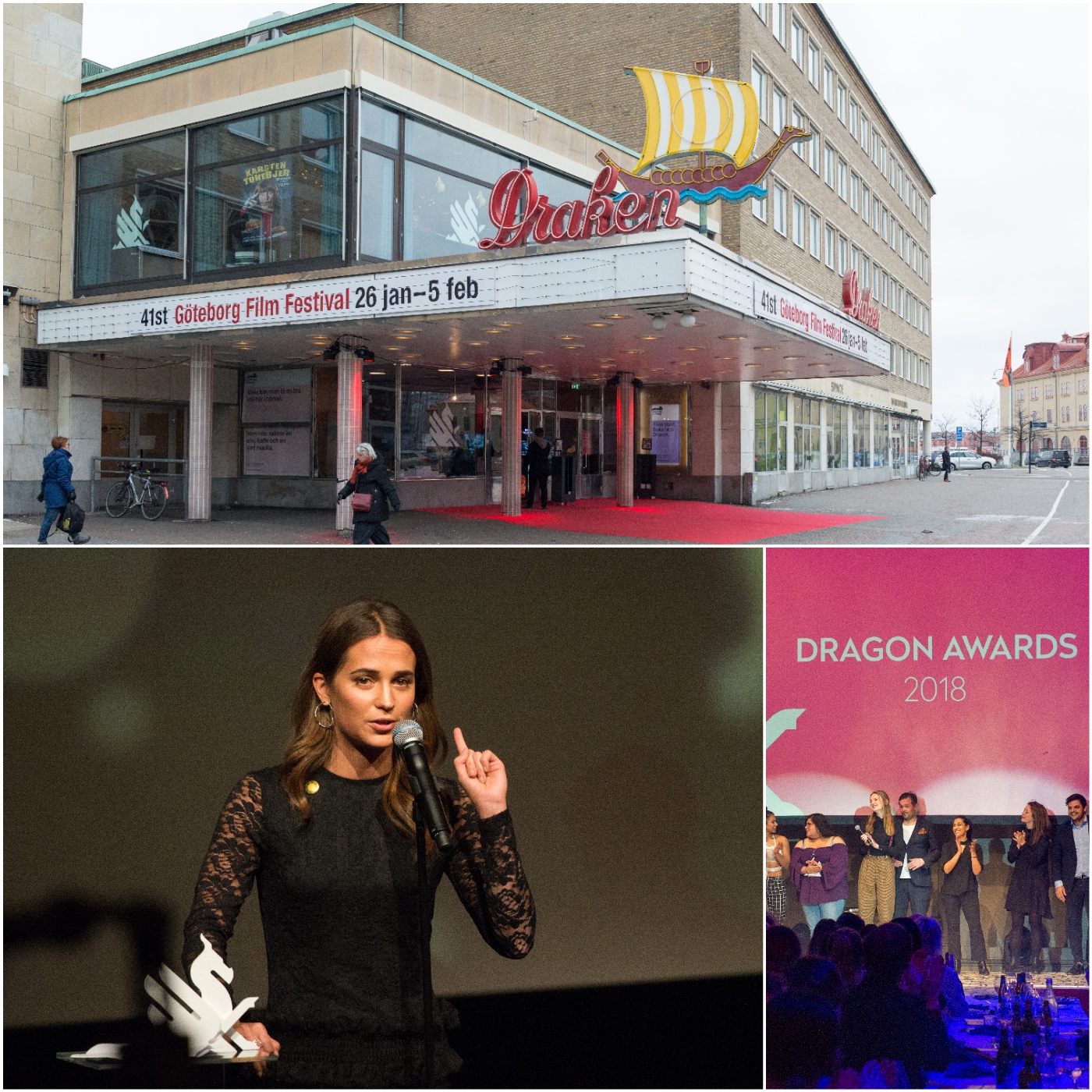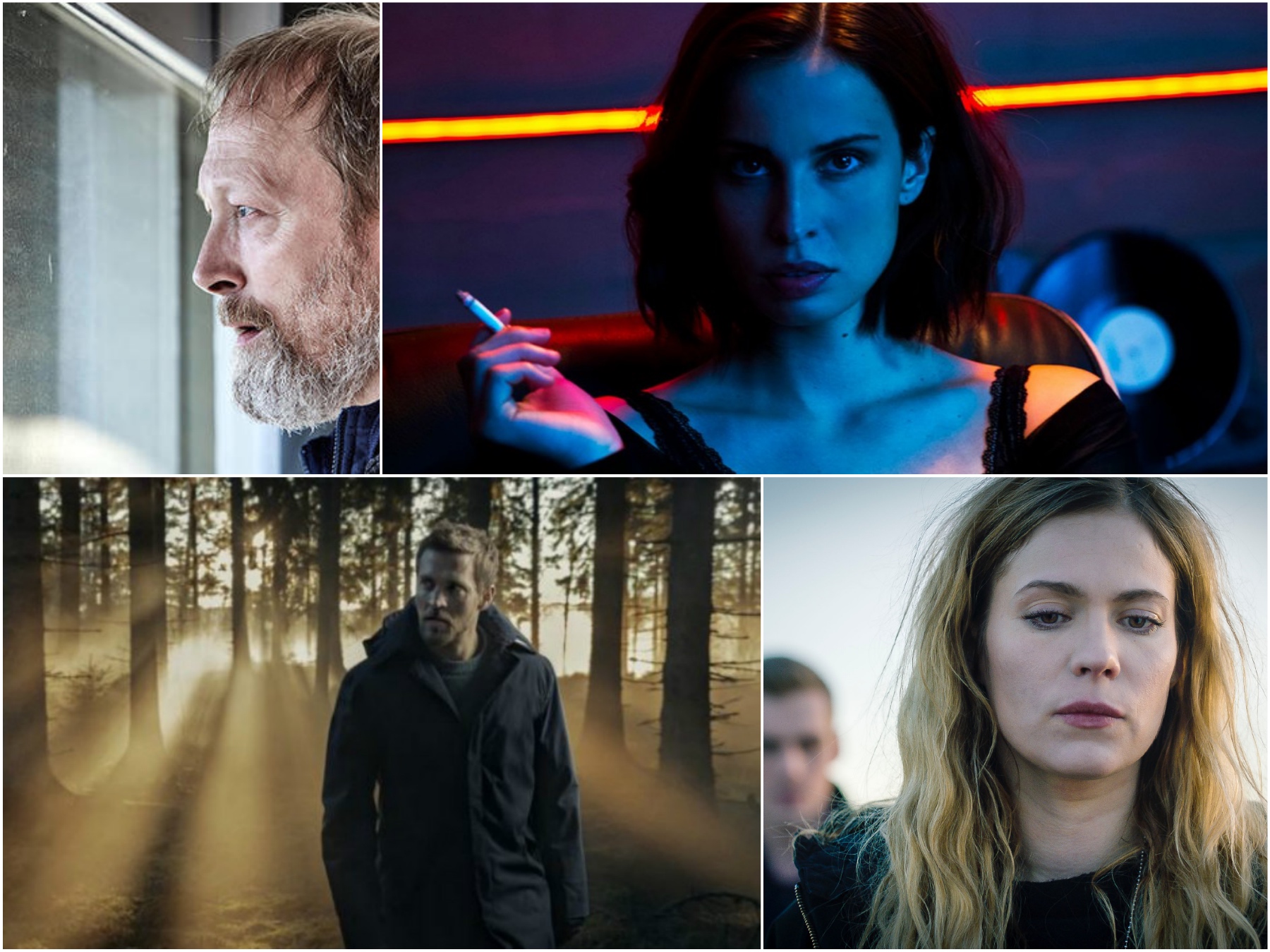
- Festivals
Gothenburg Diary: Nordic Noir Looks Ahead
Sweden’s Gothenburg Film Festival, established in 1979, is the leading film festival in Nordic countries. Between the end of January and the beginning of February it features more than 450 films from some 80 countries and sells around 130 000 tickets to the public. This year’s special guests were the city’s native daughter Alicia Vikander and French actress Juliette Binoche, who both received Honorary Dragon Awards. Ingmar Bergman (born in 1918) was also celebrated. The legendary filmmaker used to be the festival’s honorary president until his death in 2007.
The west coast city gathers not only film but also TV industry professionals together. The festival awarded films, documentaries and TV shows in the following categories: Nordic Competition (The Amateur ), International Competition (Men Don’t Cry), Nordic Documentary Competition (The Distant Barking of Dogs), Ingmar Bergman Competition (Menina) andthe Nordisk Film & TV Fond prize.
In the latter section this reporter was a jury member along with Walter Iuzzolino, executive/curator of the streaming service Walter Presents TV and Swedish actress Sofia Helin, who is known as Saga Norén on the original Swedish TV show The Bridge. She is also creator and producer of her own show, Honour, a drama about four female lawyers, which will film later this year. Helin has been following Nordic Noir closely and we asked her how has the genre changed in the last few years?
“Some are trying to copy the style just to make money out of it but it’s never successful. There have been attempts to develop it and mix it with other genres such as with supernatural elements. I think the future for Nordic Noir is to really trust the genre and dig deeper into the new situation in the world and especially in Sweden where we have a very strong #metoo movement combined with many refugees from Syria and Africa. That mixture in our country is going to bring us many new stories. We’re lucky!” she says.
Five Nordic TV scripts were competing the Nordisk Film & TV Fond Prize. This was the second time that Nordisk Film and TV Fond funded approximately 25,000 US dollars for the best writer or team of writers. Norway’s Megan Gallagher, Alexander Opsal and Bjørn Ekeberg penned Borderline, a family drama about a good policeman who returns to his hometown and discovers that his family is involved in a murder.

The Swedish thriller The Lawyer, about two siblings who in adulthood hunt for their parents’ murderer, was written by Karin Gidfors and Charlotte Lesche. Finnish crime show Deadwind, created by Kirsi Porkka, Rike Jokela and Jari Olavi Rantala, is a classic Nordic Noir: detective Sofia Karppi returns back to work after losing her husband, but has a hard time dividing her life between motherhood and investigating a young woman’s murder.
Iceland presented the country’s most popular show, an old-fashioned but colorful crime story based on the novel series Stella Blómkvist. The leading lady does almost whatever she wants. The show is written by Jóhann Ævar Grímsson, Andri Óttarsson and Nanna Kristín Magnúsdóttir.
“With Nordic Noir, women’s roles became bigger (and) more three-dimensional, and actresses got more to work with,” explains Magnúsdóttir who is also actress, director and producer. “Which was, of course, very thankful and positive. But this new woman hero was almost like a man, so powerful, so manly. I find that the most important changes in women roles are that they are more and more allowed to be feminine and strong,” As an actress, she builds a character from scratch. She is aware of all the details other writers put in their character development. “As a writer I allow my women to be women. We are multiple creatures with many background, stories, thoughts, opinions and oh yes, bodies!”
The winner was the Danish TV series Ride Upon the Storm created by Adam Price. Previously Price had co-written the Emmy award-winning series Nikolaj and Julie, and gone on to become the creator of the highly successful Borgen. Ride Upon the Storm is a character-driven drama which explores good and evil and the spiritual journey towards seeking greater meaning in life. The story centers on a family of priests that traces its roots back more than 250 years. It not a very typical Nordic show. “There are no dead girls in the woods,” Price jokes. “It is a story of a father and his sons and how easy it is to destroy children. It explores Christianity, its myths and how important religion is when everything is changing,” Price admits that the story of faith is very personal to him, even though he doesn’t come from a family of priests. He wrote and rewrote the season’s episodes several times with very few writers. One was a local priest’s son. “The leading man, Johannes, is everything that a priest should and shouldn’t be. He is confronting people in his church but he is drinking and cheating and favoring one son over the other.” Price is already working on the second season.
Sofia Helin and Nanna Kristín Magnúsdóttir also have their sights set forward. How does the future look for the already strong female characters in Nordic Noir? “The #metoo movement, which is very strong in Sweden with all the female actresses and directors coming together,” saig Helin, “is demanding from public service TV and film to offer projects with both older and foreign women in the leads and as creators. That’s going to change what kind of stories we’ll see,”
“The dark and complex mood is still the root of Nordic Noir but (the genre) has moved slightly more into character development and not just the settings or plot. The personalities are maybe not as dark but now more complex in an everyday kind of way. We feel the humanity in relationships and in my opinion that’s a natural process,” Magnúsdóttir says and adds: “I would love if the industry receded from putting everything and everyone into a box. Not just in race, gender, sexuality but also the artists themselves. Art is an evolving process and can go in so many directions. The freedom to experiment is crucial.”
Helin hopes that in the future storytelling will be more like an artwork. “If the stories are really well written people will want to watch them. So give the author time and freedom and let the actors work close together with the writer earlier in the process. It will show on screen!”

